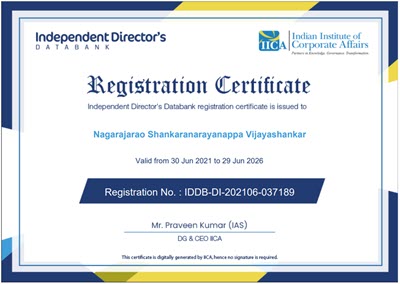[This is a continuation of our earlier article on the Kerala Judgement on Right to Forget]
The Kerala High Court Judgement on Right to Forget is a landmark judgement for the reason that it went into details of the Definition of Privacy and evaluate the Right to Forget in the context of need to ensure transparency of the Court proceedings.
The judgement also went into an analysis Right to Forget as a concept which finally resulted into the second conclusion that the Court came to namely, “The right to be forgotten cannot be claimed in current proceedings or in a proceedings of recent origin.”
In the course of its arriving at the decision, the Court observed as follows:
The right to be forgotten is a right that developed as a consequence of the dignity of an individual, adopted to forget the past and live in the present. It is based on the broader rights in Articles 7 and 8 of the Charter of Fundamental Rights of the EU (Charter).
The Data Protection Directive of 1995 (Directive 95/46/EC) contained no express right to be forgotten. But the Court of Justice of the European Union (CJEU) in its decision in the Google Spain v. AEPD [Case C-131/12 Judgment of the Court (Grand Chamber) Google Spain SL v. Agencia Española de Protección de Datos (AEPD], held that an implied right existed in the Directive.
In Google Spain v. AEPD, the grievance of the plaintiff was that links to newspaper articles relating to his insolvency proceedings were available on a Google search of his name. Contending that although the article was truthful, it injured his reputation and violated his privacy, thereby warranting erasure as it was no longer relevant. Although the CJEU did not direct the removal of the article itself which was published lawfully, it directed Google to remove links to the webpage containing personal information on any of the four conditions, such as where information was i)inadequate, ii)irrelevant, iii)no longer relevant, or iv)excessive in relation to the purposes of the processing at issue. This was to be applicable even to information published lawfully and that was factually correct.
The Court also recalled that
Article 17 of the GDPR lays down when a data subject can exercise the right of erasure, the obligation of data controllers to erase links to third-party websites, and the exceptions to the when the right can be exercised. This extends the “Right to Erase” to not only a right to get the information removed from the hands of the downstream data processors but also the other intermediary data consumers such as the websites.
It may however be observed that DPDPB 2022 recognizes the Search Engines as part of the deemed consent provision under “Public interest” .
The Court considered the definition of Right to be Forgotten as a derivation of part of “Internet Privacy” (or Information Privacy) related to individual autonomy rather than secrecy or intimacy. It also recalled that UK, France and US provides for the erasure of conviction records subject to the fulfilment of certain conditions. This is more a part of the “Right to rehabilitation” and is to be provided by data protection legislation.
This observation is relevant from the context that PDPB 2019 provided that Right to Forget is subject to Judicial Review at the Adjudication level and not an obligation of the Data Fiduciary. In such cases the conditions if necessary on granting such rights could be reviewed by the authority other than the data fiduciary.
The Right to forget is considered as subject to freedom of speech and expression, public interest in the area of public health, archiving for public interest etc. The ‘right to delisting’ and ‘right to oblivion’ are facets of the right to be forgotten in the digital context. The ‘right to oblivion’ is considered as a right which allows individuals to demand the deletion of personal information collected by information society services.
The Court then said
“The interpretation of the extent to which this right to be forgotten will be applicable in India, is an important consideration in determining the liability of the different stakeholders, actors, publishers etc. and the extent to which this right will be available in different judicial proceedings. Whether the right is available on current as well as future claims is a question to be answered by us in the context of the different factual matrices before us.” This right to be forgotten is predicated on the past, as is evident from its nomenclature which includes the term “forgotten”. Therefore, it can only apply retrospectively, on information that has already been disclosed, rather than being claimed to mask information ex-ante.”
The Court also remarked that
In the European context, the right to erasure is considered as the right to be forgotten. However, in the Indian context, we are looking at these concepts by relating them to fundamental rights.
We may have to distinguish this right on broader aspects. We have already observed that the right to be forgotten is predicated on the past. The right to erasure does not depend upon the passage of time or any period. Erasure means to delete. In the Indian scenario, these rights rest on fundamental rights not like in Europe, where it is based on European directives and more or less a regulatory mechanism exists related to data transmission or dissemination of personal information.
Therefore, the right to erasure cannot be understood in the same manner, as we refer to the right to be forgotten.
The right to be forgotten can be claimed to erase memory to move forward in life with dignity. Whereas, when the information is incorrect or irrelevant the right to erasure can be claimed.
This is an excellent clarification which removes the doubts in the minds of many data protection professionals. We hope this concept will be upheld by the Supreme Court also at some times in future.
It has been our contention that DPDPB 2022 has dropped Right to Forget but retained Right to Erasure. This clarification will help us distinguish between the two in terms of compliance. (Please refer to our earlier article where we elaborated this) .
The Court further clarified
In a given case, a party, if implicated in a criminal case is later, on investigation found to be innocent and has no connection with the crime involved, such a party may be permitted to invoke the right to erasure immediately to delete all details published online. In a claim based on the right to be forgotten, what is to be considered is the interest of a party to erase memory related to events in the past and to build a future with sincerity and good deeds and move forward in life.
The Court also said
The mere extension of an Open Court system in a digital space cannot itself be called violative of privacy rights, in the absence of any law laid down in this regard by the Parliament. Law has already recognised the Open Court system…
The right to privacy is not invaded by any publication made in a court of justice, in legislative bodies, or the committees of those bodies; in municipal assemblies, or the committees of such assemblies, or practically by any communication. made in any other public body, municipal or parochial, or in any body quasi public, like the large voluntary associations formed for almost every purpose of benevolence, business, or other general interest; and (at least in many jurisdictions) reports of any such proceedings would in some measure be accorded a like privilege. Nor would the rule prohibit any publication made by one in the discharge of some public or private duty, whether legal or moral, or in conduct of one’s own affairs, in matters where his own interest is concerned.
Individual privacy rights must yield to the larger public interest in the absence of any legislation.
The Court has limitations in balancing interests affecting a class of individuals and that of public interest. This exercise has to be done by the Legislature. The Court, however, may address the fundamental rights claimed by individuals which might not have a bearing on the collective goal. The Court cannot assume the role of the legislature to address a class and command the law.
If the Court attempts to carry out such an exercise on a notion of upholding fundamental rights, it would in essence be encroaching upon the competency of the legislature to make laws. However, nothing prevents the Court from adjudicating individual grievances and balancing such individual grievances against public interest as referable under Section 8(1)(j) of the Right To Information Act, 2005 if such individual rights have reasons to depart.
The Court also recalled the Madras High Court decision Karthick Theodre v. Registrar General, and Others [2021 SCC Online Mad 2755] where it had been stated
There must be a proper policy formulated in this regard by means of specific rules. In other words, some basic criteria or parameters must be fixed, failing which, such an exercise will lead to utter confusion…..This Court honestly feels that our criminal justice system is yet to reach such standards where courts can venture to pass orders for redaction of name of an accused person on certain objective criteria prescribed by rules or regulations It will be more appropriate to await the enactment of the Data Protection Act and Rules thereunder, which may provide an objective criterion while dealing with the plea of redaction of names of accused persons who are acquitted from criminal proceedings.
We are, therefore, of the view that the Court cannot prevent the dissemination of case details in the public domain citing the privacy of individual litigants.
The Court also recalled that
The Hon’ble Supreme Court in its judgment in R. Rajagopal alias R.R. Gopal And Another v. State of T.N. And Others [(1994) 6 SCC 632] held that the right to privacy does not extend to Court records and other public records.
The Court also recalled part of the Puttaswamy judgement stating
If we were to recognise a similar right, (Ed: Right to be forgotten as in GDPR) it would only mean that an individual who is no longer desirous of his personal data to be processed or stored, should be able to remove it from the system where the personal data/information is no longer necessary, relevant, or is incorrect and serves no legitimate interest. Such a right cannot be exercised where the information/data is necessary, for exercising the right of freedom of expression and information, for compliance with legal obligations, for the performance of a task carried out in public interest, on the grounds of public interest in the area of public health, for archiving purposes in the public interest, scientific or historical research purposes or statistical purposes, or for the establishment, exercise or defence of legal claims. Such justifications would be valid in all cases of breach of privacy, including breaches of data privacy.
In individual cases, the Court may, after adverting to time and space, order the erasure of past records. However, nothing prevents the Legislature from bringing in Legislation recognizing the right to be forgotten to erase such records after the expiry of such period as it deems fit to fix. Further, laying down the grounds when such a right to be forgotten can be exercised is the prerogative of the Legislature. As the right to be forgotten is not an absolute right, it is crucial that the legislature enumerates the grounds when an individual can claim this right.
On the basis of the above observations the Court drew a distinction of “Present” and “Past Records” and the right to be forgotten can be considered only in respect of “Past Records”, By “Past Records” the Court perhaps meant after a criminal has served the sentence.
The Court went on to state
the right to be forgotten can be claimed as a right to erase past memory. The public records relating to the petitioners who were either accused or parties to the criminal proceedings cannot be erased forever. The digital space is a dynamic space allowing vibrant data to be refreshed without the constraints of time and space. The boundaries of privacy have no limitations in the digital space.
In the real world, humans have limitations created by space and time. In the normal course of human conduct, time will erase memory. This particular problem in a digital space of allowing information to remain forever would certainly affect the right claimed as a right to be forgotten. The internet has unlimited capacity to remember. The Court cannot generally balance the interest claimed by the individuals and the information available in the digital domain for eternity.
we are of the opinion that the claim to erase or redact personal information based on the right to be forgotten, in current proceedings or proceedings concluded recently is a myth and cannot be relied on to prevent the uploading of judgments in the Court Information System.
The Court hinted that Google is not a mere intermediary and can adopt AI to create a tool and identify particular data and remove the same as necessary.
As regards India Kanoon which picks up data from public records such as the Case Information System, Court has preferred to state
Reporting and publishing judgments are part of freedom of speech and expression and that cannot be taken away lightly without the aid of law.
Thus the Court left it to the Legislative to define Right to be forgotten and indicate the time after which certain personal data may be subjected to being sent to the oblivion.
In view of the above judgement, the responsibility is now cast on the MeitY to ensure that DPDPB 2022 provides suitable clarification regarding right to forget and how it can be distinguished from right to erasure.
Concluding Remarks
In conclusion it can be said that this judgement of honourable Mr Justice A Muhamed Mustaque and the honourable Mrs Justice Shoba Annamma Eapen assisted by Sri B G Harindranath, as amicus Curiae has been an excellent contribution to the development of Jurisprudence on Right to Forget. It may require a detailed analysis by experts and this series of articles is only a reflection of the undersigned for further discussions.
Naavi
All articles in the series:
Hats off to the Kerala Judgement on Right to Forget-5: Evolution of the Right to be forgotten
Hats off to the Kerala Judgement on Right to Forget-4: Need for Transparency in Judiciary
Hats off to the Kerala Judgement on Right to Forget-3: Right to Forget is not Right to Anonymity..
Hats off to the Kerala Judgement on Right to Forget..2: Ratio Decidendi in Puttaswamy Judgement
Hats off to Kerala High Court for it’s treatise on Right to Forget









